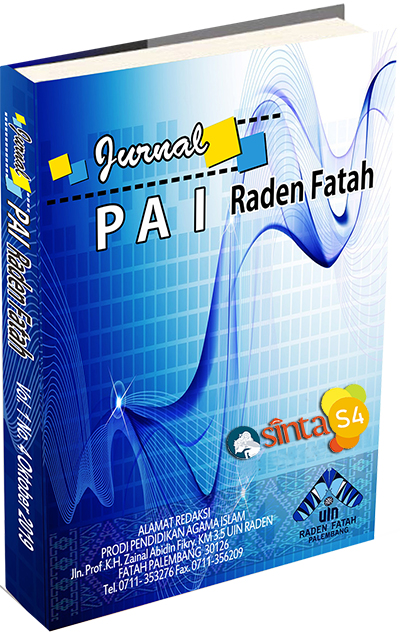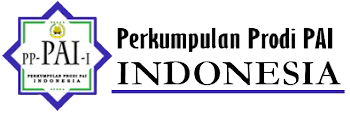Open Learning Space: Reinterpretation of Inclusive Education from a Classical Islamic Perspective in the Digital Era
DOI:
https://doi.org/10.19109/pairf.v7i3.30464Keywords:
Digital Learning, Open Learning Spaces, Strategi IntegrativeAbstract
This study examines the integration of classical Islamic inclusive values with contemporary digital education to address current disparities in access and participation. The research aims to uncover how historical Islamic educational practices particularly those rooted in the use of open learning environments like mosques and halaqah can inform inclusive models in modern digital contexts. Using a historical-thematic qualitative approach, this study analyzes classical Islamic texts alongside modern digital platforms such as MOOCs and Universitas Terbuka. The results reveal significant gaps in implementing inclusive principles within current Islamic digital education, particularly in curriculum design, teacher preparation, and institutional coordination. The study proposes an integrative framework that combines universal design, inclusive pedagogy, and spiritual-social evaluation metrics. These findings highlight the potential of revitalized Islamic educational traditions to transform digital learning into a platform for global equity, empowerment, and justice.
References
A’thoina, I. “Strengthening Women’s Educational Rights Through Majelis Taklim And Its Impact On Social Dynamics In Indonesia.” Civilization Research: Journal of Islamic Studies 4, no. 1 (2025): 38–58.
Aderibigbe, S. A., Idriz, M., Alzouebi, K., AlOthman, H., Hamdi, W. B., & Companioni, A. A. “Fostering Tolerance and Respect for Diversity through the Fundamentals of Islamic Education.” Religions 14, no. 2 (2023): 212.
Afif, F. N. H., Musyaffa, Z. H., & Al Mubarok, F. U. “Inclusive Digital Technology and Islamic Education: Promoting Social Equity for Persons with Disabilities in the Digital Age.” Multicultural Islamic Education Review 3, no. 1 (2025): 25–35.
Aisah, A., & Santosa AB, D. “). Islamic Education in The Inclusive School: Experimental Study of The Application of Differentiated Instruction For Slow Learners.” Afkaruna 15, no. 2 (2019).
Altinyelken, H. K. “Critical Thinking and Non-Formal Islamic Education: Perspectives from Young Muslims in the Netherlands.” Contemporary Islam 15, no. 3 (2021): 267–85.
Arif, M. K. “Islam Rahmatan Lil Alamin from Social and Cultural Perspective.” Al-Risalah 12, no. 2 (2021): 169–86.
Aryanti, N., Ambas, J., & Razali, R. Jurus Jitu Pendidik Pada Pelaksanaan Daring. Akademia Pustaka, 2021.
Assalihee, M., Bakoh, N., Boonsuk, Y., & Songmuang, J. “Transforming Islamic Education through Lesson Study (LS): A Classroom-Based Approach to Professional Development in Southern Thailand.” Education Sciences 14, no. 9 (2024): 10–29.
Bates, A. W. Teaching in a Digital Age: Guidelines for Designing Teaching and Learning. Vancour BC: Tony Bates Associates Ltd, 2015.
Bogossian-Porto, P., & Bogossian, T. “The School Is Not Enough: The Role of Non-Formal Educational Spaces in Preserving Armenian Identity in the Diasporic Community.” International Studies in Sociology of Education 32, no. 2 (2023): 215–38.
Candra Dewi, A., Arfah Maulana, A., Nururrahmah, A., & Muh Farid Naufal, A. “Peran Kemajuan Teknologi Dalam Dunia Pendidikan.” Journal on Education 6, no. 1 (2023): 9725–34.
Creswell, J. W. Research Design: Qualitative, Quantitative, and Mixed Methods Approaches. 5th ed. Los Angeles: SAGE Publications, 2018.
Domingo-Martos, L., Domingo-Segovia, J., & Pérez-García, P. “Broadening the View of Inclusion from a Social Justice Perspective. A Scoping Review of the Literature.” International Journal of Inclusive Education 28, no. 10 (2024): 2298–2320.
Dwi Afriyanto, & Anatansyah Ayomi Anandari. “Transformation of Islamic Religious Education in the Context of Multiculturalism at SMA Negeri 9 Yogyakarta Through an Inclusive Approach.” Jurnal Pendidikan Agama Islam 21, no. 1 (2024): 1–21.
Febriani, S. R., & Ritonga, A. W. “The Perception of Millennial Generation on Religious Moderation through Social Media in the Digital Era.” Millah: Journal of Religious Studies 21, no. 2 (2022): 313–34.
Flood, K., Wilson, D., & Renou-Wilson, F. “Evidence Synthesis and Knowledge Integration for Sustainable Peatland Management.” Land 14, no. 7 (2025): 1397.
Fricticarani, A., Hayati, A., Hoirunisa, I., & Mutiara Rosdalina, G. “Strategi Pendidikan Untuk Sukses Di Era Teknologi 5.0.” Jurnal Inovasi Pendidikan Dan Tekmologi Informasi 4, no. 1 (2023).
Hanum, L. Rihlah Ilmiah Dalam Tradisi Intelektual Muslim Di Era Digital. Serasi Media Teknologi, 2024.
Jensen, L. X., Bearman, M., Boud, D., & Konradsen, F. “Digital Ethnography in Higher Education Teaching and Learning—a Methodological Review.” Higher Education 84, no. 5 (2022): 1143–62.
Jihan, J., Fauziyati, W. R., & Krisnawati, N. “The Fundamental Concept of Islamic Education Perspective K.H. Hasyim Asy’ari.” Jurnal Educatio FKIP UNMA 9, no. 4 (2023): 1701–8.
Karimullah, Suud Sarim. “The Relevance of the Concept of Justice in Islamic Law to Contemporary Humanitarian Issues.” Al-Ahkam: Jurnal Ilmu Syari’ah Dan Hukum 8, no. 1 (2023). https://doi.org/10.22515/alahkam.v8i1.7654.
Keshavarz, M., & Ghoneim, A. “Preparing Educators to Teach in a Digital Age.” The International Review of Research in Open and Distributed Learning 22, no. 1 (2021): 221–42.
Kilinc, S. “Mothers of Children without Disabilities’ Conceptions of Inclusive Education: Unveiling an Exclusionary Education System Privileging Normality and Ableism.” Disability & Society 37, no. 10 (2022): 1678–1702.
Mahmud, A., & Islam, M. “Intersectional Oppression: A Reflexive Dialogue between Muslim Academics and Their Experiences of Islamophobia and Exclusion in UK Higher Education.” Sociology Compass 17, no. 2 (2023).
Massiah, A., Shotte, G., Rowe, V., & Minott, C. “Educational Leadership for Social Transformation: An Inclusive Approach for Schools as Places of Belonging.” Power and Education 17, no. 2 (2025): 142–58.
Mizani, Z. M. “Inclusive-Pluralistic Islamic Religious Education Model as an Alternative to Investing the Values of Religious Moderation.” Muslim Heritage 7, no. 2 (2022): 487–504.
Mukharrom, T., & Abdi, S. “Harmonizing Islam and Human Rights Through the Reconstruction of Classical Islamic Tradition.” Samarah: Jurnal Hukum Keluarga Dan Hukum Islam 7, no. 1 (2023): 40.
Muslim, M. “Internalising Digital Technology in Islamic Education.” Scaffolding: Jurnal Pendidikan Islam Dan Multikulturalisme 6, no. 3 (2024).
Nasir, M., & Rijal, M. K. “Keeping the Middle Path: Mainstreaming Religious Moderation through Islamic Higher Education Institutions in Indonesia.” Indonesian Journal of Islam and Muslim Societies 11, no. 2 (2021): 213–41.
Nasir, M., Hartati, Z., & Syahmidi, S. “The Impact of the Ĥalāqah Method in Improving the Religious Character of Students.” Scaffolding: Jurnal Pendidikan Islam Dan Multikulturalisme 7, no. 1 (2025): 260–73.
Ni’mah, Z., & Rahmawati, H. “Educational Technology in Islamic Education: A Systematic Literature Review.” Proceedings of the 2023 6th International Conference on Educational Technology Management, 2023, 148–55.
Prasetia, S. A., Asrohah, H., Najiyah, S. F., & Arif, S. “Epistemic Rationality in Islamic Education: The Significance for Religious Moderation in Contemporary Indonesian Islam.” ULUL ALBAB Jurnal Studi Islam 22, no. 2 (2021): 232–63.
Rahman, M., & Aliman, A. “Model Analysis of Religious Character Education in State-Owned Islamic School.” Journal of Educational Management and Leadership 1, no. 1 (2020): 14–21.
Romzi, M., Musthofa, M. L., & Noviyanti, S. F. “The Role of Nizamiyah in the Development of Early Islamic Education.” Maharot : Journal of Islamic Education 8, no. 1 (2024): 89.
Sahin, A. “Critical Issues in Islamic Education Studies: Rethinking Islamic and Western Liberal Secular Values of Education.” Religions 9, no. 11 (2018): 335.
———. “Love of Learning as a Humanizing Pedagogic Vocation: Perspectives from Traditions of Higher Education in Islam.” In Higher Education and Love, 2021, 137–87.
Sairi, F. M., Md Soh, N. S., Zamani, S. N. H. A., Aziz, A. A., & Abdul Jalil, S. J. “Enhancing Da’wah Strategies for Persons with Disabilities (Pwd): A Comparative Analysis from Tafsir Al-Qurtubi, Tafsir Al-Mawardi, and Tafsir Ibn Kathir.” International Journal of Research and Innovation in Social Science 9, no. 2 (2025): 1932–41.
Sri Maulidi, Arisanty, M., & Wiradharma, G. “Peningkatan Kualitas Dan Kemampuan Belajar Jarak Jauh Mahasiswa Universitas Terbuka.” Lembaran Ilmu Kependidikan 50, no. 1 (2021).
Sugiyono. Metode Penelitian Kuantitatif. Bandung: Alfabeta, 2024.
Suud, F. M., Rahmi, A., Yogyakarta, U. M., & Mekkah, U. S. “Ayah Dan Pendidikan Karakter Anak (Kajian Teks Dan Konteks Perspektif Psikologi Pendidikan Islam).” 7, no. 1 (2020): 1–14.
Syafi’i, Imam. “Exploring Multicultural Values in Interfaith Lecturer Cooperation: An Ethnography.” Edukasi: Jurnal Pendidikan Dan Pengajaran 12, no. 1 (2025): 141–53.
———. “The Effectiveness of Ghorib Learning through Microsoft Teams E-Learning Platform in Indonesia.” Academiapublication.Com 5, no. 1 (2025).
Syarnubi, Syarnubi, Alimron, Alimron, Fauzi Muhammad. Model Pendidikan Karakter Di Perguruan Tinggi. Palembang: CV. Insan Cendekia Palembang.. Palembang: CV. Insan Cendekia Palembang, 2022.
Syukri, S., Mukhlis, M., & Ismail, I. “Revolutionizing Education: Exploring the Quranic Perspective on Online Learning and Its Impact on Modern Education.” Journal of Higher Education Theory and Practice 23, no. 20 (2024).
Wathoni, K. Implementasi Pendidikan Inklusi Dalam Pendidikan Islam. Tulung Agung: State Islamic Institute of Tulungagung, 2013.
Yar, H. “An Invisible School: Social-Cultural Work of the Mosque Organizations.” Religions 14, no. 1 (2022): 62.
Yemmardotillah, M., Indria, A., Asrizallis, & Indriani, R. “Tantangan Dan Peluang Pendidikan Agama Islam Di Era Society 5.0.” Malewa: Journal of Multidisciplinary Educational Research 2, no. 2 (2024): 75–87.












.png)


1.png)



